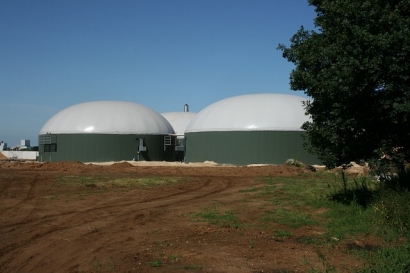
Future Biogas currently operates 10 Anaerobic Digestion (AD) plants in the UK, generating renewable energy in the form of biogas through anaerobic digestion.
The collaboration will see Pentair utilize its Biogas Upgrading and CO2 Recovery Technology to convert the biogas coming from Future Biogas’ AD plants into biomethane, in addition to recovering the CO2 generated.
Philipp Lukas, CEO of Future Biogas commented,“This cooperation combines the knowledge and expertise of two industry-leading companies. We are delighted to be working with Pentair, a globally significant player in biogas upgrading and carbon capture solutions. Our cooperation will provide UK customers with sustainable and cost-effective solutions for biogas upgrading, CO2 recovery, carbon capture and sequestration for the AD industry in the UK.”
Roland Folz, Pentair Food & Beverage Global Business Unit Leader said, “At a time when carbon emissions and energy market volatility is rising, it’s becoming ever vital to transition to renewable energy. Our collaboration with Future Biogas has the potential to bring about this change and to make a lasting impact on the environment.”
As biomethane has the same specifications as natural gas, this makes it fully compatible with the UK’s existing natural gas infrastructure and a sustainable replacement for fossil fuels, supporting UK businesses’ decarbonization strategies.
Global CO2 emissions are projected to grow by 4.8%, according to the recent IEA Global Energy Review 2021, and with this captured CO2 being effectively sequestered under the North Sea via Future Biogas’ planned Humber port facility, this technology is helping to contribute towards reducing the global CO2 footprint.
[1] Pentair BioComplete and/or Pentair CO2 Bolt-On generates 1 ton an hour at a run time of 8,400 hours per year = 8,400 tons per year, per plant. With 25 Pentair BioComplete and/or Pentair CO2 Bolt-On systems, this will result in approximately 200,000 tons of CO2 recovered and stored per year.

